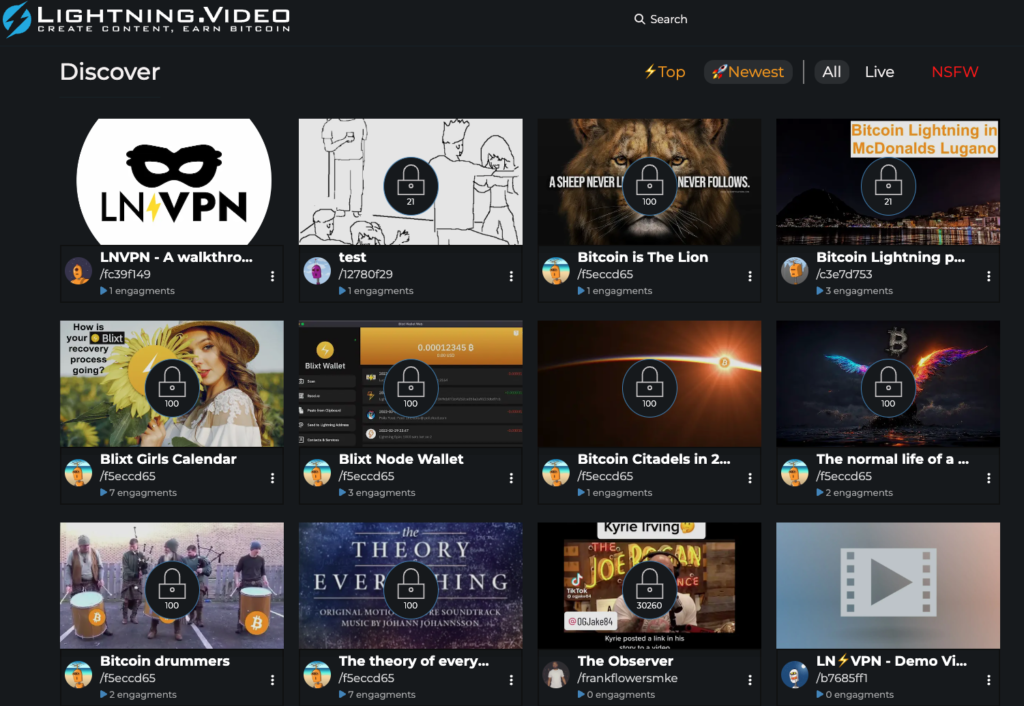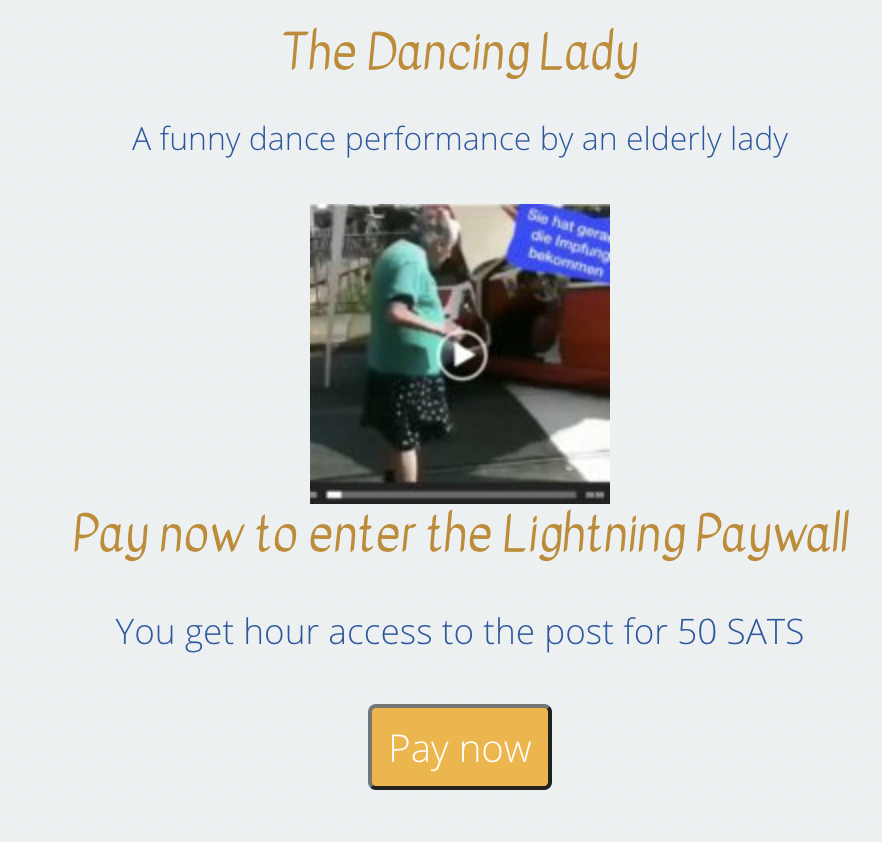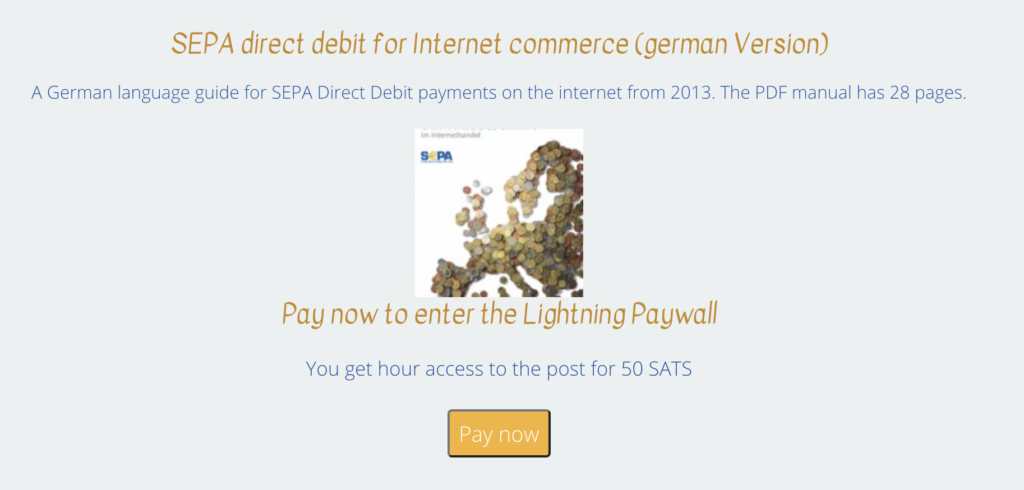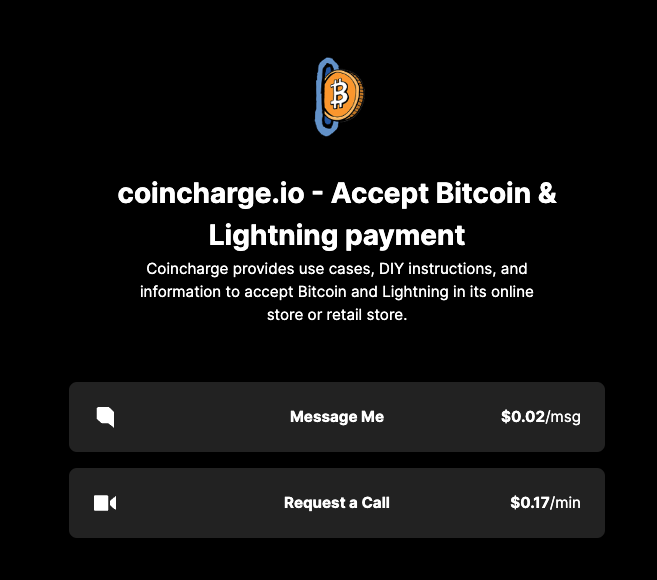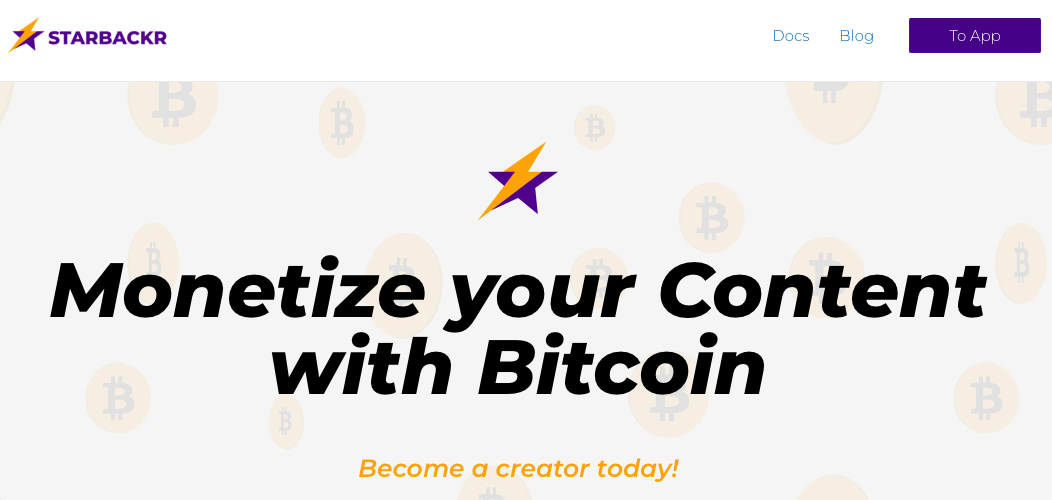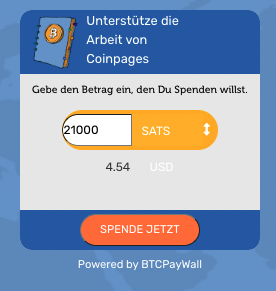Lightning and Bitcoin accepted for digital goods, content, products, services and services
Earn Bitcoin and Lightning with digital content. If you are a content creator and create digital content, you can find out in this article how you can sell these digital goods with Lightning or receive a donation from users for your work.
In contrast to an online store with physical goods, which are sent by post, digital goods can be delivered directly via the Internet. These digital goods are available in various forms and applications. Digital content (texts, videos) can be activated after a successful payment or digital products (files, software and eBooks) can be downloaded. Video calls, training courses and podcasts can be streamed for a fee, access to protected member areas can be provided or users can make a donation for the content provided free of charge.

In the past, this content was often offered free of charge because there were no suitable payment options. People had to rely on the marketing opportunities offered by Google & Co. But with Bitcoin Lightning, anyone can market their content themselves and focus on the wishes of their customers. We present various use cases and describe how you can accept Bitcoin Lightning for digital goods. Digital goods are delivered in digital form via the internet. The sale of digital products therefore differs from the sale in an online store or physical store. In the articles“Accepting Bitcoin and Lightning payments in online stores” and ” Accepting Bitcoin and Lightning payments in stores“, we looked at the sale of physical goods and products. In this article, we explain why payment via Bitcoin Lightning is particularly suitable for the sale of digital goods and products. We explain the advantages of Bitcoin, and Lightning in particular, compared to previous internet payment methods. We present some business models and applications and explain how content creators can sell their own digital products using Lightning or receive a donation from their users.
Bitcoin payment for physical goods vs. digital goods
When purchasing physical goods online, the buyer places the goods in the shopping cart, goes to the checkout and enters their personal details and full address. The complete identity is disclosed, as the postal service must be able to deliver the physical goods. This information is not required for the sale of digital goods. Theoretically, an e-mail address is sufficient to which the order for digital goods can be delivered via the Internet. However, anonymous payment is not possible with credit cards and PayPal. The customer must disclose all their personal data to the merchant or payment provider in order to prevent fraud and chargebacks by the user. There are no chargebacks for Bitcoin payments. A Bitcoin or Lightning payment is irrevocably credited to the provider, eliminating the need to query and verify customer data. The customer does not have to enter endless data and there are fewer abandoned purchases at the checkout. Customers can pay quickly and easily on the spur of the moment simply by scanning a QR code. Bitcoin and Lightning payments are one of many interesting payment methods for physical products at the online checkout.
Bitcoin Lightning is particularly suitable for the sale of digital goods. We explain why this is the case in the following sections.
Micropayment: Paying small amounts with Bitcoin Lightning.
The term micropayment stands for payments of very small amounts and can also be referred to as micro-payment. When paying for digital goods, it is usually a micropayment, as the prices are often less than five euros. Lightning can be used for micropayments and even nanopayments, i.e. payments of just a few cents. In addition to the technical possibility, the costs for payment processing are one of the main arguments for offering Lightning payments for digital goods. Payment methods such as PayPal and credit cards charge a fee of around 2.5% on sales plus a transaction fee of 35 cents. If you convert these fees to products with low prices, then the costs of payment processing amount to 6% of the value of the goods for a product price and even 38% for a product of €1,-
| Product price | 2.50% of the turnover | 35 cents per transaction | Payment processing costs | Costs in % of the value of goods |
| 10,00 € | 0,25 | 0,35 | 0,60 € | 6% |
| 1,00 € | 0,025 | 0,35 | 0,38 € | 38% |
Payment processing via Bitcoin or Lightning incurs only minimal costs for the provider. On average, Bitcoin payment providers charge around 1% of turnover and do not charge any transaction fees. Digital goods are mostly micropayments and Bitcoin Lightning is particularly suitable for micropayments.
Individual sales vs. subscription models or product packages
Due to the high costs of payment processing for credit cards, PayPal etc., providers of digital goods are interested in offering customers higher-priced packages or subscription models. Customers, on the other hand, prefer to pay per product. Why should you take out an annual subscription if you only want to read a single article? Content providers that enable their customers to make Bitcoin Lightning payments in addition to credit card and PayPal can offer both subscriptions and individual sales. There is no reason why customers should not be offered the opportunity to try out individual products in order to gain regular customers with an attractive subscription model. Recurring payments for subscription models cannot yet be implemented with Bitcoin Lightning. This function will only be possible with Bolt 12. At the moment, Bitcoin Lightning is suitable for one-off payments.
Examples of Lightning and Bitcoin payment for digital goods
We now present various products and applications that are suitable for payment via Bitcoin Lightning.
- Pay-per-post / pay-per-read payment per newspaper article, blog post or page
- Pay-per-view – payment per video, audio or podcast
- Pay-per-File / Pay-per-Download – Payment per downloaded file, eBook, software, presentation, image
- Pay-per-comment – payment per comment, writing a message or support request
- Pay-per-stream Fountain / Muun
- Pay-per-call / pay-per-videocall
- Donations
Unlock digital content via Bitcoin Lightning
Digital content is protected by a paywall and displayed on the website after successful payment. Paywall solutions are mainly used by publishers to offer newspaper articles and blog posts for a fee. Before an article can be read without restriction, a reader must register with the publisher. The reader usually receives a subscription with a discounted trial period, which becomes a normal subscription if the customer does not cancel. Publishers adopt the business processes familiar from the print product and try to sell long-term subscription models. However, readers on the Internet are not interested in long-term subscription models for an entire newspaper if they only want to read a specific article. An Internet subscription is an interesting product for regular readers, but not suitable for spontaneous Internet visitors. For these one-time Internet customers, the sale per newspaper article is a good option. More and more website operators are responding to customers’ wishes and implementing corresponding Bitcoin or Lightning paywalls for individual newspaper articles or blog posts. It is not the publishers who sell individual articles, but freelance authors and journalists who offer their own content independently of publishers and media companies.
Pay-per-Post / Pay-per-Read
The following example shows how a single newspaper article can be sold. A paywall is integrated at a certain point on a website. The complete article can only be read after a successful payment. The amount and the time period for activation can be defined individually for each article. In the following example, the article can be read over a period of one day for the amount of €1. The Lightning Paywall looks like this for the user:
Congratulations.
You have unlocked this area by paying €1.
If you have a Lightning Wallet, you can make a test payment and read the message that is then displayed.
Pay-per-View
In the case of a newspaper article, text is protected by a paywall. However, other digital formats such as video or music can also be played on a website. The viewer pays a fee and the video is played on the website once it has been activated.
Content creators who create their own videos can offer these videos on a platform such as https://lightning.video/ and receive the generated revenue
In addition to the option of presenting your videos on a paid video platform, you can also market your videos on your own website. If you run a WordPress website, you can install the BTCPayWall extension and market your videos on your own website. If you want to learn stand up paddling, you can buy individual training videos for the equivalent of 29 cents on the SUP Online Academy website.
Bitcoin & Lightning Paywall Provider
A paywall protects digital content from being used free of charge.
If you offer texts or videos on your own website, you will now find a large number of lightning paywall providers.
In the article“Lightning paywall providers“, we present the various providers and their solutions.
Pay-per-File / Pay-per-Download
With pay-per-file download, payments can be settled per downloaded file. While in the previous example the texts and films are displayed or played on the provider’s website, here we are talking about the sale of files that the buyer can download to their own computer. Files sold by download are usually eBooks, software, presentations or PDF files.
When placing the order, the buyer enters their email address to which the file will be sent or the download link will be sent. Alternatively, the file can be uploaded automatically after payment. The buyer can then download and use the file on his own computer.
Pay per comment / message
Anyone who runs their own website receives numerous spam requests via their contact form. This flood can be tamed with a payment per message. To be able to send a message, a Lightning payment must first be made. In this way, contact forms can be protected from spam or paid support requests can be offered. If you run a website with WordPress, you can use the WordPress extension“Pay to Comment with Lightning“. Lightning payments can be processed via LNbits or the BTCPay server.
Earn Bitcoin Lightning with podcast
Podcasts are becoming increasingly popular, but the producers of these podcasts often only have sponsorship as a source of income. The Podcast 2.0 initiative now makes it possible for listeners to (voluntarily) pay for the podcast. The payment can be made for the duration listened to or a special spot can be highlighted with a one-off payment via Boost. The Lightning Wallet Breez has a built-in podcast player through which the corresponding Lightning payments can be made. The Fountain app also supports the function to make payments to a podcast, but also to earn Lightning payments for listening.
If you run your own BTCPay server, you can use the PodServer plugin to receive Lightning payments for your podcast.
You can find out which podcasts and podcast players support Podcast 2.0 in the Podcast Index.
Earn Bitcoin Lightning per video call
Get paid for a video call and receive Lightning payments per minute. The provider Vida offers the option of being paid per minute by a caller. This solution is ideal for advisors and coaches who want to offer individual advice via the Internet as part of a video call. In the article:“VIDA – Earn Bitcoin from a caller” we have presented this solution in more detail.
Monetize your content with Starbackr
Starbackr is a content platform on which content creators can present themselves and monetize their own content. Starbackr is like Onlyfans, but based on Bitcoin Lightning. The content creators provide posts, photos and videos and users can pay for the content with Lightning. In the article“Starbackr – Earn Bitcoin with your content” we introduce Starbackr in more detail and explain how you can create your own profile to earn Bitcoin Lightning or pay as a user.
Earn Bitcoin Lightning per value for value donation
Despite the numerous ways in which digital content can be offered for a fee, most content is still offered free of charge. Users appreciate this more and more and want to reward this work. Supporting the work of these content creators is based on the value for value approach. Content creators who would like to receive donations for their work via Bitcoin Lightning have a variety of options available to them. In the article“Receiving Bitcoin donations“, we take a detailed look at the option of receiving donations via Bitcoin Lightning on your own website.
Coinpages for website that accept Bitcoin
If you accept Bitcoin for digital goods on your website, list your website in the Bitcoin directory of Coinpages so that even more Bitcoiners will know that they can pay with Bitcoin and Lightning.
Coinpages is a Bitcoin directory of all stores that accept Bitcoin.

